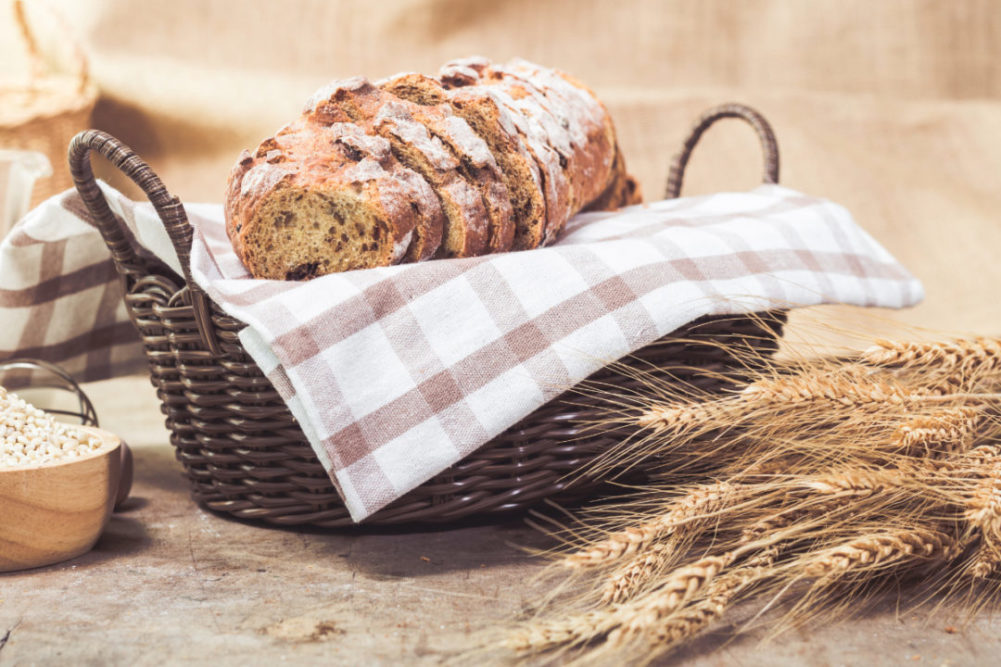WASHINGTON, DC, US — A call hosted Dec. 3 by the Grain Foods Foundation elicited broad participation and strong interest in moving forward with a breadbasket checkoff program funded by the milling and baking industries, said Christine Cochran, executive director of the GFF.
In addition to Cochran and Erin Ball of the Grain Foods Foundation, other participants in the call were Chandler Goule and Josh Tonsager, National Association of Wheat Growers; Chris Clark and Dale Nellor, North American Millers’ Association; Tim O’Connor and Dave Mangan, Wheat Foods Council; Steve Mercer, US Wheat Associates; Marsha Boswell, Justin Gilpin, and Aaron Harries, Kansas Wheat Commission; Janice Cooper, Wheat Marketing Center; Sharon Davis and Charlene Patton, Home Baking Association; Tara Smith, Michael Torrey Associates; and Claudia Carter, California Wheat Commission.
Cochran said discussion of the program prompted numerous questions from the group about a variety of topics, including foodservice’s inclusion or exclusion from the program, the potential for research partnerships, and the projected budget for the program.
Gilpin, chief executive officer of the Kansas Wheat Commission, told the group that the Kansas Wheat Growers has passed a resolution in support of the breadbasket checkoff initiative.
“It is exciting to think about the breadbasket checkoff as it may be the most significant thing to have happen to the wheat and baking industry in the last 50 years,” he said. “The timing is perfect right now to move forward as an industry on engaging consumers with industry investment in marketing and promotional efforts for flour-based foods. There hasn’t been a more appropriate time for the industry to come together for a campaign of education, promotion and marketing to consumers for flour-based products.”
Goule, CEO of NAWG, said wheat growers are hopeful the program will be launched promptly.
“Wheat is primarily a food grain, so growers recognize the importance of educating consumers on the vital nutritional role it plays in the human diet,” Goule said. “NAWG supports a national checkoff program, funded by the milling and baking community, which aims to promote the goodness of bread to consumers, and hopes we can get this program up and running quickly.”
Several on the call offered availability for follow-up conversations regarding vision and planning for research that could be undertaken under the checkoff’s financial umbrella. While discussion during the call about potential research generally remained at a high level rather than diving deep into the details, Cochran said the Home Baking Association, the Kansas State Wheat Commission and the Wheat Marketing Center are interested in further dialogue.
For its part, the GFF staff has been “outlining preliminary tiers of possible research” that would include analysis tapping into data sets beyond the National Health and Nutrition Examination Survey (NHANES) and even funding randomized controlled trials, to allow for short- and long-term eating studies.
“The dialogue observed in the public meetings of the 2020-2025 Dietary Guidelines for Americans Committee made very clear that research including both refined enriched and whole grain products in groups of staple goods as well as indulgent products would go far in helping to better delineate guidelines for grain foods overall, rather than the committee’s current limitations of merely advocating for whole grain products and discouraging refined enriched products by lumping them in the very general ‘unhealthy Western’ dietary pattern,” Cochran said. “The committee was clear that without additional scientific evidence, they were unable to make positive recommendations about consumption of refined enriched staple grain foods.”
Cooper, who is managing director of the Wheat Marketing Center, said research would represent an important step forward for the wheat industry.
“The Wheat Marketing Center is strongly supportive of the national checkoff for millers and bakers,” said Janice Cooper, managing director. “WMC demonstrates the important link between wheat quality and end-product quality through research and technical training and we look forward to partnering with the Grain Foods Foundation to expand knowledge and understanding about how to meet changing consumer demands.”
While US Wheat’s focus is on export opportunities for wheat, Mercer, who serves as the group’s vice president of communications, offered a strong endorsement of the initiative. He said the timing for the launch of a program is attractive.
“Circumstances in 2020 have fundamentally changed the marketing environment for grain-based foods,” he said. “With the chance to benefit all the players in the grain foods supply chain, including the farmers we represent in overseas markets, there has never been a better time to invest in promotion through a national checkoff program.”






